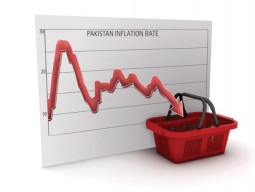
Sui Southern Gas Company (SSGC) Managing Director Zuhair Siddiqui has said the maximum limit for unaccounted-for gas (UFG) that can be charged from consumer by gas utilities, as determined by the Oil and Gas Regulatory Authority (Ogra), is unrealistic considering the weak infrastructure and high incidence of gas theft in Pakistan.
Siddiqui, whose company is facing difficulties in controlling UFG losses, says that the standoff between the SSGC and Ogra on the UFG issue may lead to the bankruptcy of the utility company.
Analysts believe that SSGC’s gas losses on account of UFG are somewhere in the vicinity of 10-11%, which is hurting the profitability of the company.
“SSGC’s fate will continue to hang in the balance until a final decision is reached on UFG standards,” Siddiqui said while talking to The Express Tribune at the company’s head office.
Siddiqui said that even industrialised countries like the United States, where there is no issue of gas theft, provision for an average UFG of 5.5-6%. However, gas theft has played a significant role in increasing the percentage of UFG losses incurred by gas utilities in Pakistan. “We cannot ignore gas theft in our country, and that the fact that the figure is significant for gas utilities,” he added.

The SSGC had earlier filed a petition in the Sindh High Court against Ogra’s refusal to revise UFG benchmarks upwards, but a decision on that case is still pending. The SSGC’s financial health hinges on the court’s verdict.
The company posted a net profit of Rs2.58 billion in fiscal 2012. In case the petition is decided against the company, that profit figure would swing to a loss of Rs4.41billion for the company. However, if the petition is decided in favour of the company, with all issues raised by the company addressed, SSGC’s net profit for fiscal 2012 would increase by a further Rs2.43 billion.
“Going to court is not the solution. We have to find a long-term solution, because achieving 4.5% UFG is not realistic, and insisting on it will really hurt utility companies,” Siddiqui said.
The SSGC petition says the UFG benchmark fixed by Ogra is arbitrary and unrealistic. It also said that Ogra can only impose a penalty on the company under Rule 20 of the Natural Gas Tariff Rules, 2002, for violating the UFG benchmark, which cannot exceed a maximum of Rs730 million per year.
The company is facing a liquidity crunch, as its current receivables are touching Rs92 billion. For instance, the Karachi Electric Supply Company (KESC) alone has to pay Rs46 billion, out which Rs16 billion is for outstanding interest on receivables.
“The KESC and SSGC have agreed upon a plan, but the company says it will not pay the interest, which is not acceptable to us,” said Siddiqui. “We know we cannot receive all our receivables at once, but something should be done to keep the company afloat,” he added.

SSGC has initiated a $200 million Natural Gas Efficiency Project (NGEP) financed by the World Bank through the Government of Pakistan. The project aims to reduce UFG levels to around 6.7% by financial year 2017. By the completion of this project, Siddiqui said, UFG will be controlled and brought down to around 6%, but that will take at least 3-4 years.
“There is an acute shortage of gas in the country, but there is no realisation among the masses about this fact,” he said; adding that gas conservation has never been a priority in the past, but now, with growing demand and shrinking gas supplies, we should know that we cannot sustain in the longer run.
Published in The Express Tribune, April 5th, 2013.
Like Business on Facebook to stay informed and join in the conversation.

















COMMENTS
Comments are moderated and generally will be posted if they are on-topic and not abusive.
For more information, please see our Comments FAQ